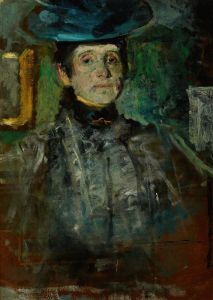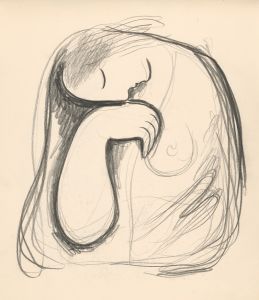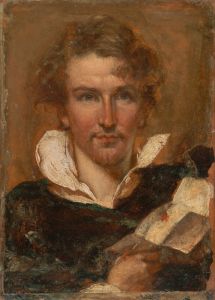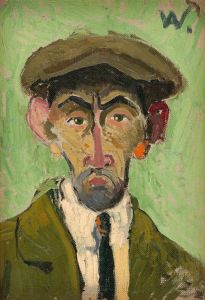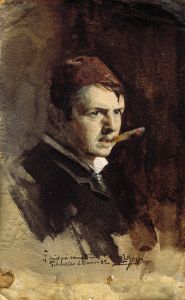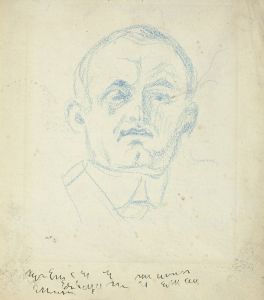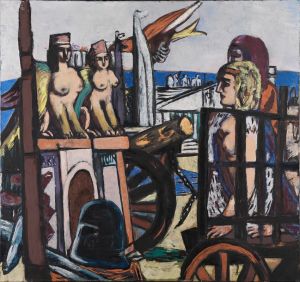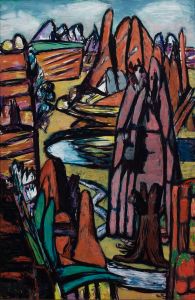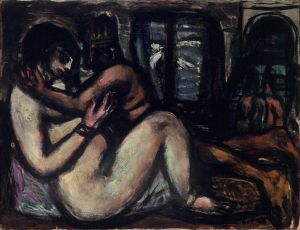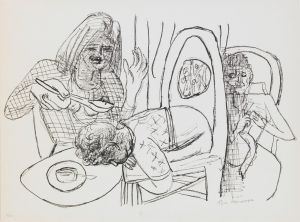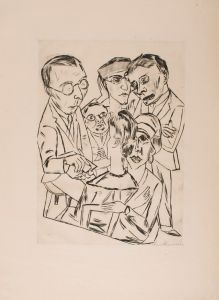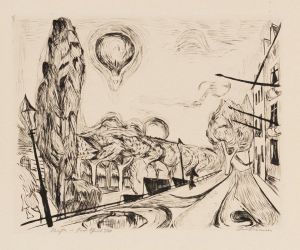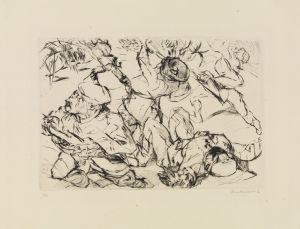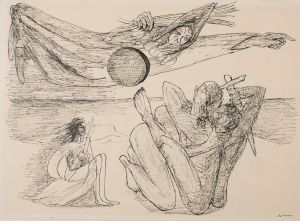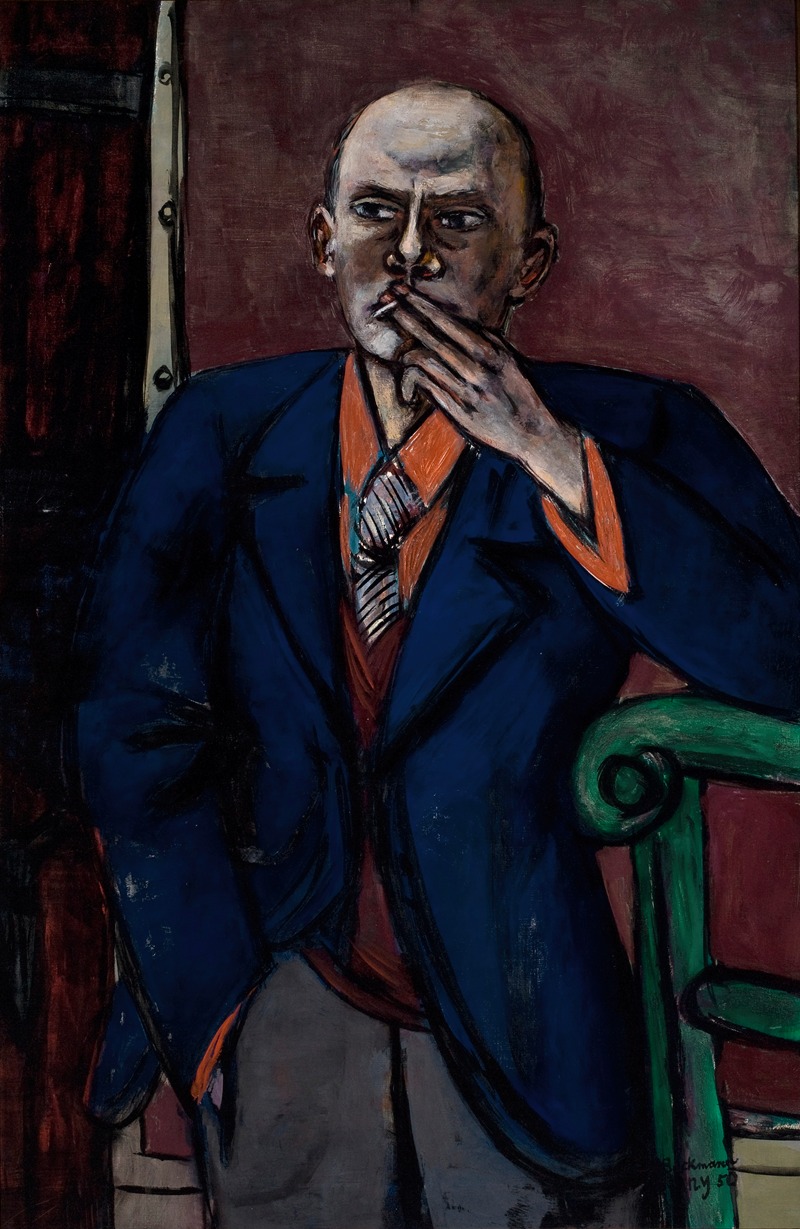
Self-Portrait
A hand-painted replica of Max Beckmann’s masterpiece Self-Portrait, meticulously crafted by professional artists to capture the true essence of the original. Each piece is created with museum-quality canvas and rare mineral pigments, carefully painted by experienced artists with delicate brushstrokes and rich, layered colors to perfectly recreate the texture of the original artwork. Unlike machine-printed reproductions, this hand-painted version brings the painting to life, infused with the artist’s emotions and skill in every stroke. Whether for personal collection or home decoration, it instantly elevates the artistic atmosphere of any space.
Max Beckmann, a prominent German painter and printmaker, created numerous self-portraits throughout his career, reflecting his evolving artistic style and personal experiences. Among these works, his self-portraits are considered significant for their introspective nature and their ability to capture the complexities of his identity and the turbulent historical context in which he lived.
Beckmann's self-portraits often depict him with a direct and intense gaze, emphasizing his role as both an observer and participant in the world around him. His works are associated with the New Objectivity (Neue Sachlichkeit) movement, which emerged in Germany during the 1920s as a reaction against the emotionalism of Expressionism. This movement sought to portray reality with a sense of clarity and detachment, often addressing social and political themes.
One of Beckmann's most notable self-portraits is "Self-Portrait in Tuxedo" (1927), which exemplifies his mature style. In this painting, Beckmann presents himself in formal attire, standing confidently with a cigarette in hand. The composition is marked by its bold lines, strong contrasts, and a sense of psychological depth. The work reflects Beckmann's self-assured persona as an artist, while also hinting at the underlying tensions of the interwar period in Germany.
Beckmann's self-portraits are not merely representations of his physical appearance; they also serve as a means of exploring his inner world and the broader societal changes of his time. His works often convey a sense of alienation, resilience, and introspection, which resonate with the challenges he faced during his life, including his experiences as a soldier in World War I, his persecution under the Nazi regime, and his eventual exile.
Max Beckmann's self-portraits remain an essential part of his artistic legacy, offering insight into his personal journey and the historical context of early 20th-century Europe. These works continue to be celebrated for their technical mastery, emotional depth, and their ability to engage viewers in a dialogue about identity, art, and history.





